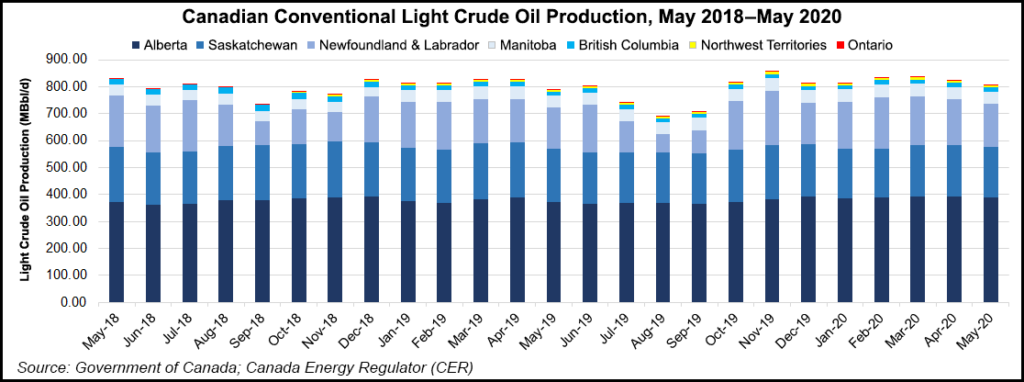Regulatory | NGI All News Access | NGI The Weekly Gas Market Report
Newfoundland’s Grand Banks Oversight Move Seen Rekindling Interest in Canada’s Offshore Oil, Gas
After a decade of divided authority blamed for approval delays, Canada’s offshore oil and gas watchdog agency has regained full power over sea-floor exploration on the resource-rich Grand Banks of Newfoundland.

A new regulation transfers jurisdiction over environmental aspects of ocean drilling back to the Canada-Newfoundland and Labrador Offshore Petroleum Board (CNLOPB) in St. John’s from the Impact Assessment Agency of Canada (IAAC) in Ottawa.
Federal Natural Resources Minister Seamus O’Regan, who represents a St. John’s riding in Parliament, said the switch means “Canada reinforces its status as an internationally competitive place…where investors can count on more predictability and certainty.”
Newfoundland Premier Dwight Ball predicted the switch “will shorten timelines for exploration drilling program approval while protecting the environment — two important areas of consideration for companies looking to make global investment decisions.”
Offshore industry participants recorded lengthening delays of Grand Banks drilling approvals after jurisdiction was divided by a 2010 mandate assigned partial authority to the IAAC’s predecessor, the Canadian Environmental Assessment Agency (CEAA).
Average Grand Banks drilling approval times nearly tripled to about 900 days from one year. A wide regulatory performance gap behind other countries resulted, reported the Canadian Association of Petroleum Producers (CAPP).
Average environmental assessment periods for offshore wells stayed far brisker at 18 days in the UK, 79 days in Norway, 96 days for U.S. waters in the Gulf of Mexico, and 144 days in Australia, showed the CAPP research.
Canada Environment Minister Jonathan Wilkinson promised the new emphasis on single-agency regulatory efficiency would still keep standards high by incorporating lessons from CEAA and IAAC experience with offshore drilling.
No firm deadlines were set for future CNLOPB decisions on drilling. The new rules require 90-day advance notices of offshore exploration plans.
Newfoundland Natural Resources Minister Siobhan Coady predicted the reformed regulatory process would rekindle interest in Canadian offshore resources. Provincial earth scientists identify potential reserves of about 52 billion barrels of oil and 200 Tcf of natural gas in more than 650 Grand Banks drilling targets.
© 2024 Natural Gas Intelligence. All rights reserved.
ISSN © 1532-1231 | ISSN © 2577-9877 | ISSN © 1532-1266 |
